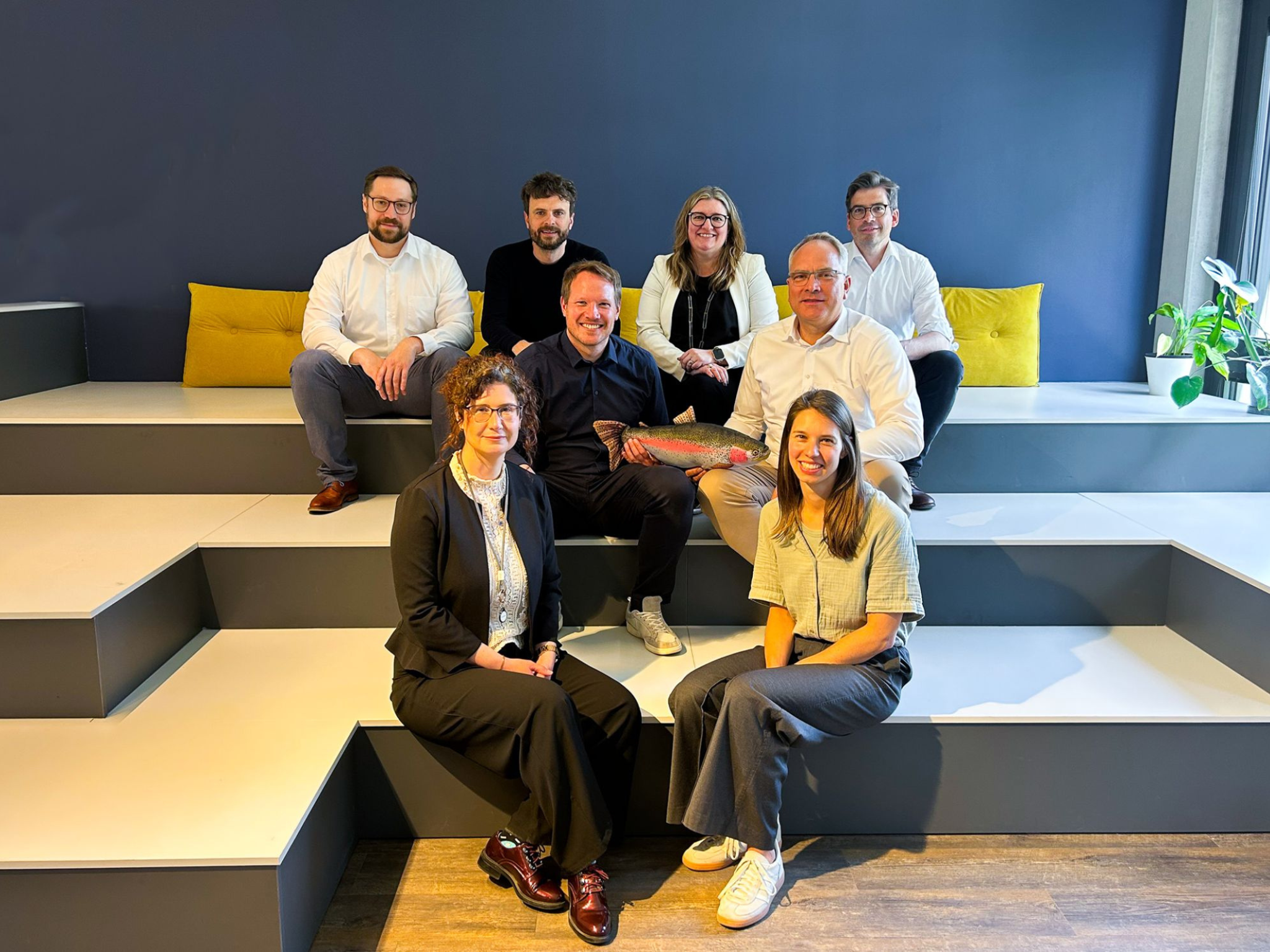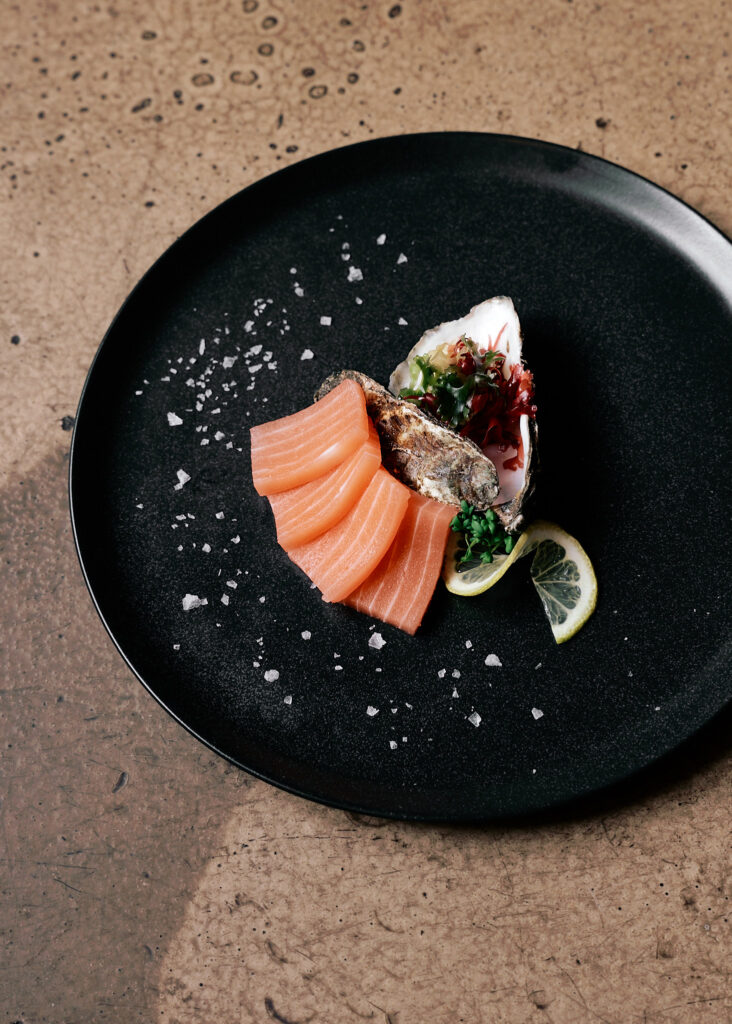
German cultivated meat startup Bluu Seafood has teamed up with spice manufacturer Van Hees to create hybrid proteins combining cultured fish cells with plant-based ingredients.
As it awaits regulatory approval in multiple geographies, Germany’s Bluu Seafood has partnered with Van Hees, which makes spice blends and functional ingredients for the food industry, to develop proteins combining cultured fish cells with plant-based ingredients.
The partnership will leverage Van Hees’s technological and culinary expertise and Bluu Seafood’s cultivated fish platform to create customised hybrid seafood products with high sustainability and sensory appeal.
“We see great potential in cultivated fish as part of a sustainable protein supply,” said Robert Becht, managing director of Van Hees. “This cooperation enables us to contribute our innovative strength to a forward-looking segment and actively participate in the transformation of the food system.”
Bluu Seafood latest to embrace hybrid meat

Van Hees has been operating for nearly 75 years, with a presence in over 80 countries. It produces spices, spice blends, processing additives, and marinades for use in a range of meat, sausage and vegan products.
Its collaboration with Bluu Seafood aims to optimise the texture, stability and flavour profile of cultivated meat products. Van Hees is working closely with Aromatech, a long-standing partner that has expertise in the field of flavour technology, and using the expertise of its Food.PreTect competence centre to enhance product safety and prolong shelf life.
Hybrid meat has been touted as the only viable way of commercialising cultivated meat, which suffers from cost and scale bottlenecks, in the near term. Most products that have entered the market have been mixed with plant-based ingredients with a low percentage of cultured animal cells. Some companies, in fact, are manufacturing cultivated fat to add to plant proteins.
This is the same approach taken by Wildtype, the only company to have successfully brought cultivated seafood to market. Its salmon, which is now being served at Portland restaurant Kann, combines fish cells with plant-based ingredients to replicate the structure and texture of conventional Pacific salmon. That said, the cells are the primary ingredient after water in this product.
Bluu Seafood itself is working on both salmon and rainbow trout, and indicated that the collaboration with an established food company like Van Hees is a key step in its path to market readiness.
“Both sides – we at Bluu Seafood as a pioneer in the field of fish cell cultivation and Van Hees as an established and experienced food company – can only benefit from the partnership,” argued Sebastian Rakers, co-founder and co-CEO of the alternative protein firm. “This offers enormous opportunities for the development of delicious yet sustainable foods.”
Targeting cultivated seafood approval in several markets

Rakers founded Bluu Seafood with Simon Fabich in 2020 and has made several production and regulatory strides on its way to market.
The company opened Europe’s first dedicated facility for cultivated seafood production in Hamburg last year, sprawling 2,000 sq m and housing fermentation tanks with a capacity of 65 litres. It planned to scale up to the full 2,000 litre capacity this year, allowing it to produce cultivated muscle, fat and tissue cells from Atlantic salmon and rainbow trout in much larger quantities.
Bluu Seafood’s first products will be fish balls and fingers; in the works are prototypes for salmon sashimi and trout fillets. “If the scalability and market conditions are favourable, we will be able to offer cultivated fish at wholesale fish prices in as little as three years,” Rakers told Green Queen last year.
Like most cultivated meat companies, it plans to launch in foodservice first. “At the market entry point, we will only have a very limited number of products available. We will therefore take a careful positioning strategy, and initially work exclusively with well-known restaurants, chefs and influencers,” he said. “Rollout with exclusive retail partners will follow thereafter.”
The startup is pursuing regulatory clearance in Singapore, the US and Europe, though the timelines it expected have been delayed several times. “Considering that the EU approval process with its 27 members is a lot more complex, we will probably focus on European countries outside the EU first – for example, the UK and Switzerland,” Rakers said.
The EU’s novel food framework has been a hot topic in recent weeks. In the newly released life sciences strategy, the EU Commission said it will propose a Biotech Act to overhaul and speed up regulatory approval in the region. These measures would include regulatory sandboxes, better mobilisation of public and private funds, and an AI tool to help companies embed regulatory compliance at the early stages of product development.
“Even with centralised approaches, long authorisation procedures under regulatory frameworks that require pre-market authorisation to ensure safety for human health and the environment can delay market entry of innovative products,” the strategy states. “Efforts should also be made to increase efficiency and to significantly reduce the length of authorisation procedures in the health, medical devices and food areas, to make the EU more attractive in comparison to other regions in the world.”
The post Germany’s Bluu Seafood Hooks Deal with Spice Major Van Hees to Develop Cultivated Fish Products appeared first on Green Queen.
This post was originally published on Green Queen.